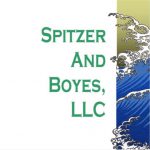-
From the Wall Street Journal:
“Federal investigators released a fresh list of safety shortcomings at BP PLC’s Texas refinery, including a finding that managers authorized the start-up of a unit in March despite knowing key alarms weren’t working. The start-up caused an explosion that killed 15 people, the deadliest U.S. petro-chemical accident in 15 years.
Citing the findings, the U.S. Chemical Safety and Hazard Investigation Board called on BP to set up an independent panel immediately to review safety across its U.S. refining operations. BP said it would “move speedily” to comply.
The Texas City, Texas, plant is BP’s largest U.S. refinery in terms of capacity. The plant has suffered a string of fatal and nonfatal accidents in the past two years, attracting intense regulatory scrutiny. The March 23 blast injured 170 people in addition to the 15 fatalities.
The recommendation for an independent panel widens the focus of that scrutiny to include other BP facilities. The agency isn’t planning on sending its own investigators to other sites. But it said findings released yesterday “raise serious concerns about…the effectiveness of BP North America’s corporate safety oversight” and warranted a broad review of BP’s refining operations.”
CSHIB said an independent panel should investigate safety “culture,” along with BP programs for reporting near-miss accidents and inspecting and repairing equipment. It also recommended the panel look at how BP has integrated safety practices at refineries it acquired in recent years.
CSHIB investigators found that BP managers authorized the start-up of the octane-boosting processing unit at the heart of the Texas City explosion on March 23 despite knowing of problems with some alarms. The board cited a March 10 work request signed by unidentified “management officials” at BP acknowledging repairs were needed but indicating they would be deferred until after the unit’s start-up. It is unclear whether the nonfunctioning alarms played a direct role in the accident. A BP spokesman said,”our belief is that instrumentation was adequate to allow the start-up of the facility.”
Again quoting from the WSJ: “The board also found that most of the 17 start-ups at the unit since April 2000 exhibited “abnormally” high pressure and temperature readings, an indication that something was wrong. But the abnormal start-ups weren’t investigated, and the start-up procedures weren’t re-evaluated, the board found. BP previously has said the accident was the result of errors made by its employees who made a series of operational and supervisory mistakes during the start-up.”
Contrast this with Dow Chemical’s corporate safety culture, which is based on the proven fact that plants operated in as safe a manner possible are also being operated in the most optimized manner possible, and produce the greatest revenue possible.
What this means is that short-term profit drove managers to cut safety corners, endangering workers and eventually producing long-term losses.
I find it one of the most interesting points that the CSHIB investigators are pointing directly to the company culture as a major causative factor.
The best process automation system in the world, backed by the best designed Safety Instrumented System in the world won’t save you from an accident caused by people deliberately defeating the alarm system and doing unsafe things anyway, in the name of profit.
What do you think?
Walt
Technical Services And Strategic Consulting For Technology Companies
